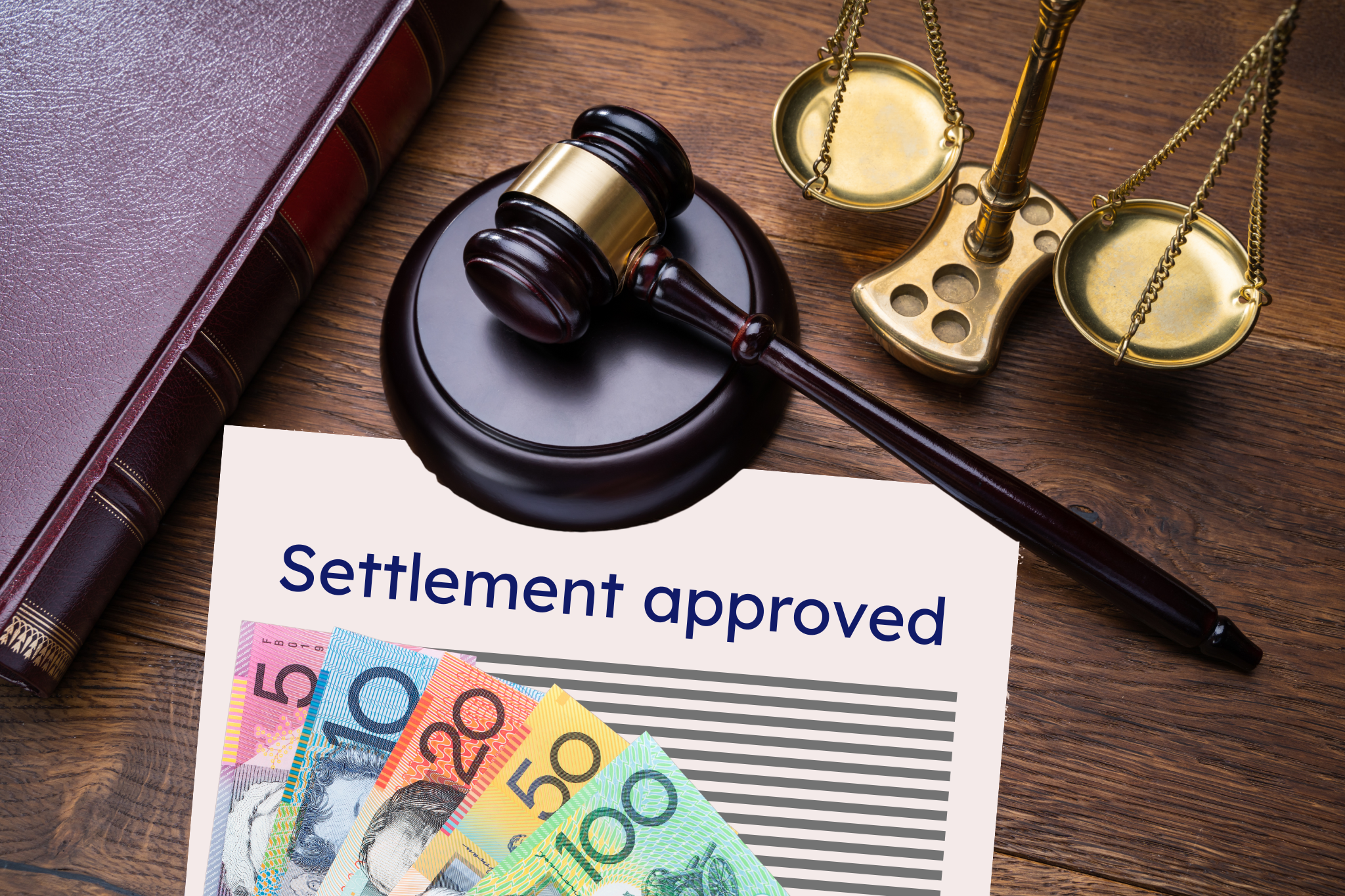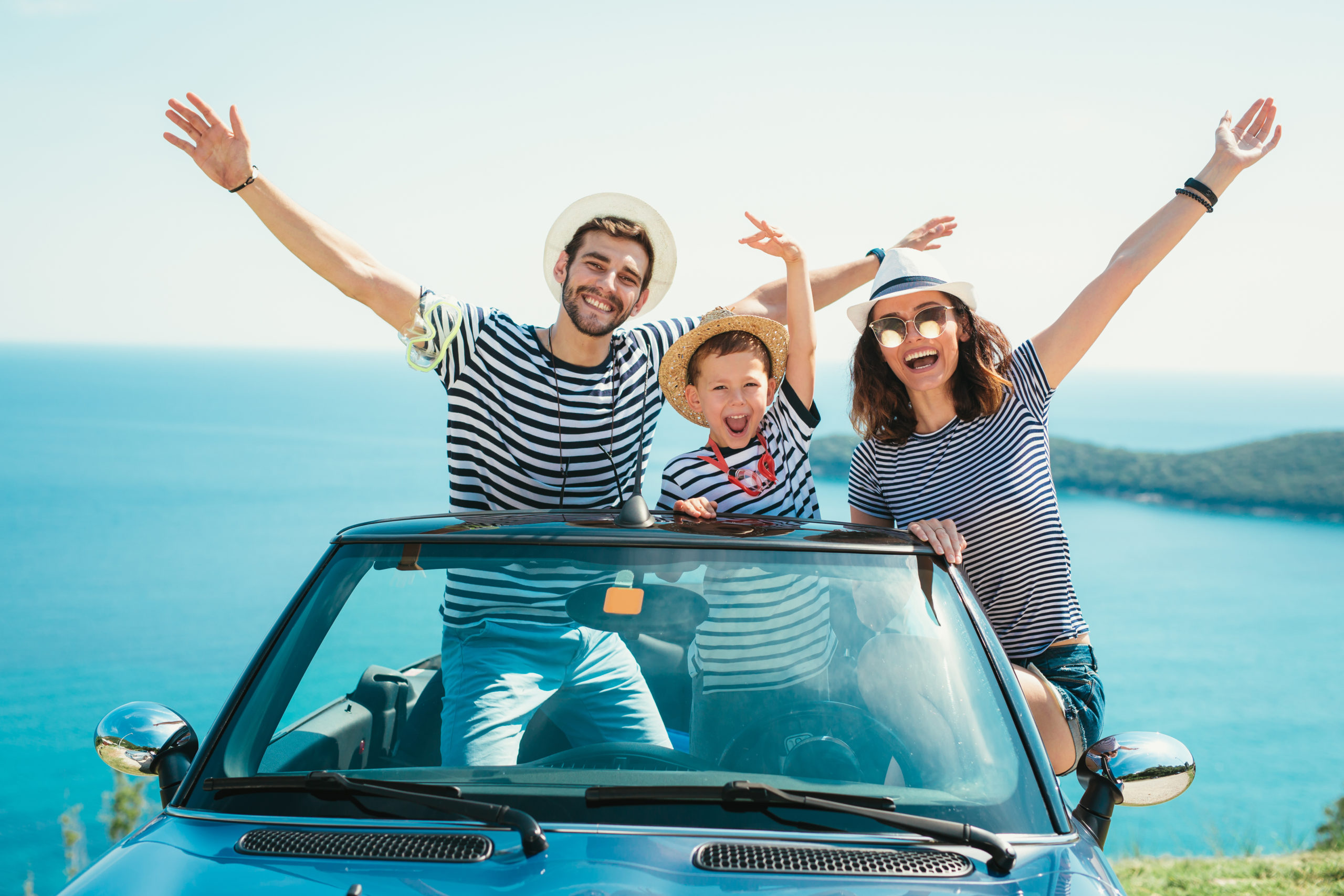
Ready to travel? Here’s how to see Australia without blowing the travel budget
If you’ve been feeling trapped within your own state, you’re probably more than a little excited at the thought of the country opening up. But you may be worried about blowing your travel budget with unexpected expenses.
Travelling in this Covid recovery period is not without its challenges. The pandemic has brought unpredictability to almost everything we previously took for granted — from border restrictions and other new travel requirements to the inevitable price rises, there’s a lot to catch you unawares.
So how do you plan an affordable getaway in this era? We’ve rounded up some top tips from budget travel experts.
First things first
If your plans are cancelled because of Covid-19, the Australian Consumer Laws don’t apply. Which means getting a refund or date change depends on the Terms and Conditions (T&Cs) of your booking. Before making or accepting a booking, get to know the border restrictions and go over the T&Cs. While the states and territories are opening up, most still have some restrictions. Travellers who have been double vaccinated, for example, will have a lot more freedom to travel interstate, as well as to move in and around the state once they arrive. Do your research before you go. This way you will know what you can and can’t do if your holiday plans hit a roadblock.
If you’re already on a tight budget, you’re unlikely to have the funds for an extra, unplanned quarantine stay either at your destination or on your way home. If you’re taking out travel insurance, be aware that getting cover for Covid-related delays will be difficult, if not impossible. And while most airlines will enable you to use your ticket at a later date because of Covid, you won’t necessarily get a refund. Check all the information on the relevant state or territory’s website, such as NSW’s look before you book before you plan your getaway.
Travelling out of season is good for your budget
Everyone talks about the best time to visit somewhere, but did you know taking a trip during “the best time” is not actually the best time? Yes, we said it three times so you remember. Why?
Firstly, there are too many people going to the same place at the same time. We know you have missed the fun of being around people after months of isolation but crowds are a holiday buzz kill. Crowds mean long queues and lengthy wait times and you won’t have enough time to savour each destination. Travelling is all about seeing new places and making memories. You don’t want them to be memories of waiting in line to see popular attractions. And all your photos will be filled with the heads of strangers, rather than the kind of Insta-worthy shots you crave.
 .
.
Secondly, discounts are few and far between. The best attractions always have customers during peak season, so they will not try to lure you with price cuts.
So we suggest taking a trip during the ‘shoulder season’, which is before or after the recommended season to travel. Accommodation and attractions are not fully booked at this time hence are, therefore, generally more generous with discounts.
For example, if the travel guide says the best time to visit is from October to December, plan your trip for September or January. You may not get the ‘best of season’ experiences, but you’ll still have a great trip.
The shoulder season in Australia depends on your chosen destination — check out these guides from Frommers and Budget travel and leisure.
Sleep soundly - and cheaply
Accommodation can eat up a huge chunk of your budget. If you don’t wish to fork out $300 a night on lodging, trade hotel rooms for hostels. You can compare the best deals using Hostel World or Hotel Combined.
If you have your own transport and don’t mind the dark, or the odd mosquito, camp at non-powered national parks or holiday parks. Pitching a tent in these areas is generally free. Just make sure you pack some mosquito repellent for a good night’s sleep.
Powered holiday parks may not be free but they’re still way cheaper than hotel rooms. You get the same outdoor vibe but with a place to charge your phone and take a #livingthelife selfie. Use CampStay or WikiCamps Australia to compare prices.
Another affordable option is staying with friends or family. If you’re a good guest — we suggest cooking a meal at least one night and helping where you can — they’ll be happy for you to hog the spare room, or couch, for a few nights at least.
Another option to consider is house sitting. A house sitter can enjoy inexpensive (or sometimes free) accommodation in exchange for looking after the home or pets while the owners are away. Best of all, you can live in a community like a local and really get to know the place. It’s like moving your own home somewhere new, at least for a few days.
Peruse the following sites for more information: Aussie House Sitters, Mind a Home and Happy House Sitters.
Pack properly
Research your destination before you go and pack accordingly. It will save you spending potentially hundreds on items such as sunscreen, hats or warm jackets that you invariably could have bought much cheaper at home.
While the must-haves depend on the kind of trip you’re taking, we highly recommend bringing sunscreen, two pairs of comfy pants, a sweater and emergency kits (and undies, of course - lots of them). EF has a packing checklist for any kind of trip.
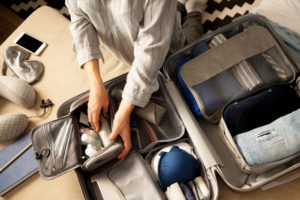
If you need to shop for affordable travel bags or campers, or anything else, before you go, check out GetPrice, Wispri, and OzBargain. These websites let you either compare item deals and prices or set a tracking alert for when the item price drops.
Buying travel cards is good for your budget
If you can use public transport for your trip, use it. Check if your destination has a travel card such as the Myki Card in Victoria, or Opal Card in NSW. These cards offer several freebies such as free train journeys on weekdays before 7.15 am or unlimited travel in select zones with concessions. Doing a little bit of research into how the locals travel can save you a lot of money on more expensive ways of getting around, such as taxis.
You can also hop on the bus for backpackers, The Magic Bus Australia, or refer to this guide to public transport in the country. It’s got plenty of budgeting tips.
Cash in on coupons
Governments are keen for the return of travellers, too, so they have offered generous travel and tourism vouchers to lure you back. There are also budget travel and discounts from well-known coupon companies such as Groupon and Scoopon.
We suggest also regularly checking Lifehacker, The Organised Housewife and 7news for exclusive travel deals.
If you’re looking to keep down the amount you spend on activities once you get to your destination, check out BookMe, ExperienceOz and Finder for discount coupons.
If you’re a pensioner, you may be eligible for discounted rail travel. Check the relevant state or territory website for Australian Capital Territory, New South Wales, Northern Territory, Queensland, South Australia, Tasmania, Victoria or Western Australia to find out how to get these discounts.
Don’t consume your cash
Your stomach says yes, but your wallet says no. If this is your dilemma, swap restaurant dinners for lunches as they are cheaper. Purchase ready-to-eat meals at local supermarkets or local fresh food markets.
If you want to treat yourself to a celebrated restaurant in your destination — and who doesn’t — check out the menu before you go and make sure you’ve saved enough for that splurge.
If you’re travelling by car or campervan, bring your own cooking gear, and prepare mouth-watering dishes on your own, using ingredients from local markets.

Use Find a Market or check out the local visitor centre’s website to find the nearest market.
Save on fuel
If you’re driving, fuel will be one of your biggest expenses. You can’t control the price (if only) but you can try to plan your trip so that you’re filling up on cheaper days or holding out for the next discount stop.
Thankfully, you don’t need a spreadsheet — others have taken the stress out of filling up. The Australian Competition & Consumer Commission lists the cheapest and most expensive days to buy fuel in key cities. You can also use third party apps, such as Petrol Spy, FuelPrice Australia and Compare the Market, to track prices.
Mind the speed
According to car experts, your driving speed can help your car go farther between fills. The rule of thumb is when driving around town, keep a steady speed; when driving on freeways, use cruise control if your car has it. And use your car’s air conditioner sparingly, as it chews up the fuel.
And, of course, always stick to the speed limit — you don’t want to add a fine to your travel expenses and blow your budget!
Budget wisely for travel
If you need to stick to a budget - and let’s face it, we all should - make it part of your planning. According to Champion Traveler, these are the average costs of a budget trip:
-
- Solo traveller: $68 to $97 per day
- Couple: $89 to $139 per day
- Family of four: $177 to $278
These amounts cover food, activities and budget accommodation. The latter is based on 3-star hotel rooms. Your spend amount can go lower if you don’t mind sleeping under the twinkling stars and feeling the soft breeze brush against your face while listening to the cacophony of insects (doesn’t that sound romantic?).
But even without the challenges of a pandemic that is still far from over, it is always best to err on the side of caution and make sure you have a budget for emergencies.
What’s the right budget travel adventure for me?
Picking the right adventure depends mainly on three things: your adventure buddies, your travel budget and your available time.
If you don’t have much time to plan but have extra cash to spare, choose guided tours. Otherwise, create your own itinerary to enjoy the freedom and flexibility it offers.
Ask yourself these questions before making a decision:
-
- Who is travelling with you? Kids, especially younger ones, may not be up for the time constraint that comes with organised group tours.
- Do you have your own 4WD vehicle, campervan or caravan? If not, will the cost of hiring affect the budget?
- How fit are you? Can you endure walking tours?
- Can you keep yourself warm in a tent on a cold night? Can your back survive sleeping on a hard floor?
- Are you comfortable being alone in unfamiliar places or do you like the security travelling in a group offers?
Budget travel in Australia
Guided tours
Join Meetup groups
Meetup has plenty of travelling social groups wherever you are. It also showcases different adventure choices, depending on what you can afford.
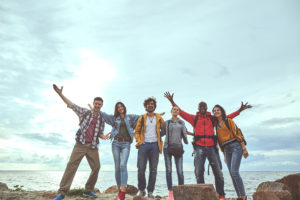
Whether you’re a solo traveller or travelling with a smaller group, you can benefit from joining a bigger group via Meetup.
It’s usually more affordable because expensive items such as accommodation, food, tickets and so on can be bought in bulk, enabling discounts.
To start your journey, create an account on Meetup and search for like-minded group travellers.
Walking holiday
Walking holidays are usually guided tours that enable you to feast your eyes on cultural, historical or unique sites as you walk. Some walking holiday organisers offer self-guided tours with an itinerary but sticking to it is optional.
Because you’re using your own two feet to get from place to place, it’s far less expensive than using a car.
There are also seemingly endless options in every state and territory, each one taking you to unexpected corners of the country. And you can keep fit at the same time.
They can also accommodate different levels of endurance - from easy to moderate or challenging - as well as time and budget. Choose one that suits you. To join a walking tour, find a reputable organiser and take it from there.
Independent travel on a budget
Overland tours
If you wish to see plenty of interesting places without breaking the bank, Overlanding is for you. It’s like backpacking but in a car, allowing you to bring more gear and grub than just the bag on your back.
For Overlanding to succeed, you need at least the following:
-
- 4WD vehicle
- GPS systems
- solar chargers
- satellite modems
- camping accessories
- water storage & accessories
But avoid the temptation of packing too much. The extra weight has a big impact on the vehicle’s handling. As a result, you will have a hard time accessing wet and slippery terrain. With unpredictable weather, who knows what types of road you’ll come across.
And remember: not all 4WDs are created equal. Research your vehicle’s limits so you don’t find yourself bogged in the middle of nowhere.
It also helps if you can learn basic troubleshooting for your vehicle. How do you install new headlights? How do you change tyres?
Caravanning
The campervan and caravan industry is booming despite the pandemic and it’s hardly surprising. Besides being probably the safest way to enjoy Australia’s natural environment, as you’re far from crowds and ‘social distancing’ in your campervan or caravan, it’s also cheaper than staying at motels, let alone hotels.
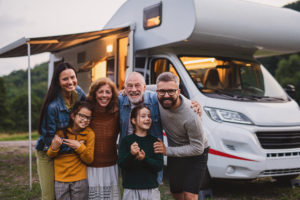
Did you know staying in even the cheapest hotels in NSW for a week can easily set you back $1000? Caravanning, on the other hand, can be free if you’re not picky about facilities or have your own power supply. Even powered sites are way more affordable than staying in hotels -- they usually charge between $35 and $65 per night.
Backpacking
Backpacking equals freedom. It allows you to set your own schedule and visit whatever place you’d like to, without worrying about parking or if your vehicle fits in an off-road route because you only have your body and bag to bring.
It’s the most wallet-friendly option mainly because you’re not paying anyone to do the planning for you nor are you filling up with fuel.
If you’re travelling on your own, however, it pays to keep a loved one up-to-date with your movements, particularly if you’re keen to go off-road. We don’t want to read about you in the news for all the wrong reasons.
Taken a wrong turn?
You’ve been waiting so long to explore, we want you to enjoy every moment of your adventure. But rest assured, if you have a problem with your travel, such as with the hostel or tour you booked, we can help you resolve the issue. All you need to do is say the magic words 'Help Me Handle It'. And we'll give you a helping hand to resolve any travel-related complaint.




